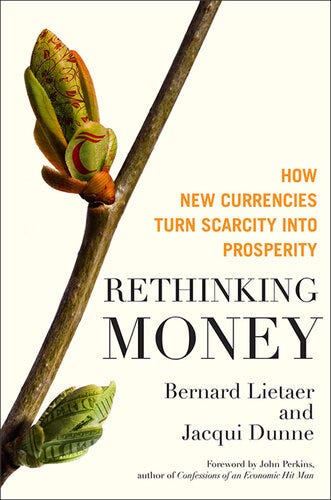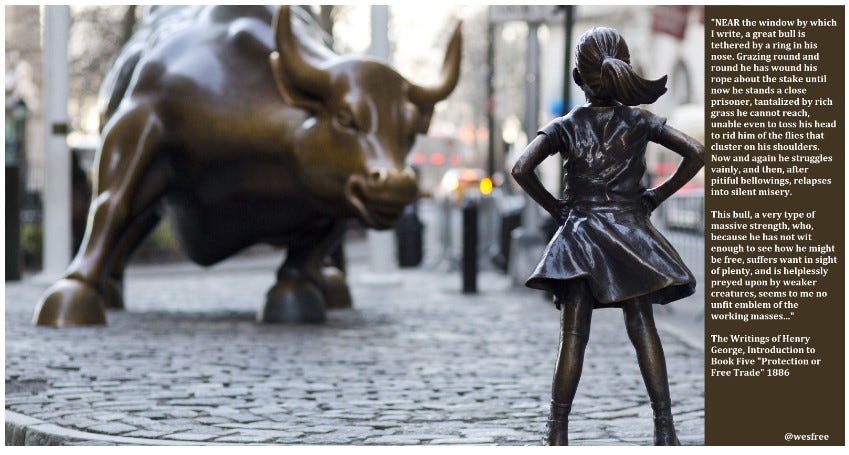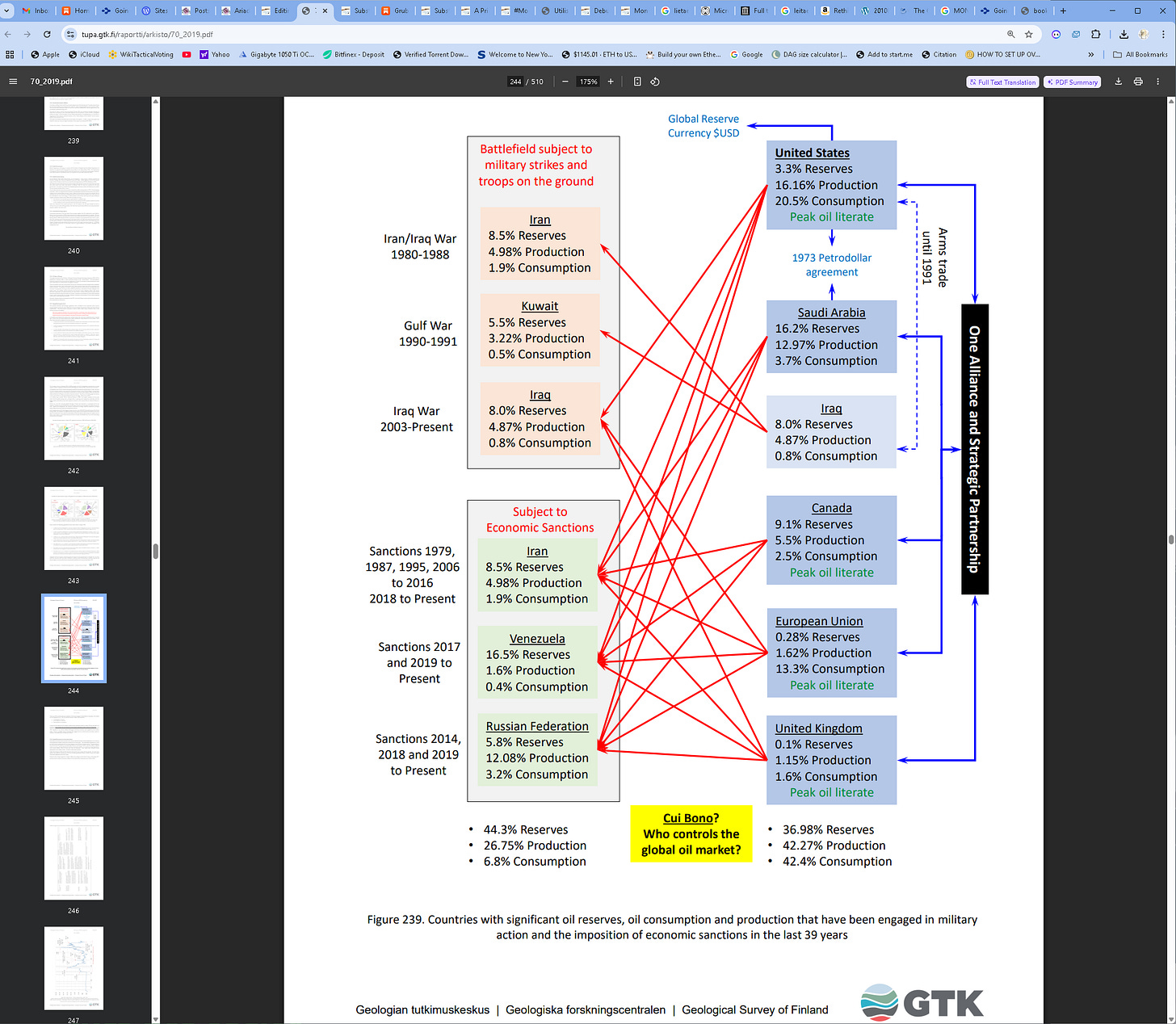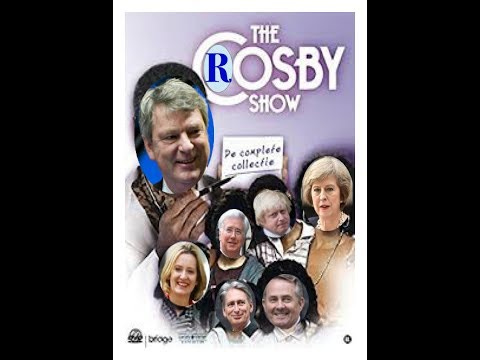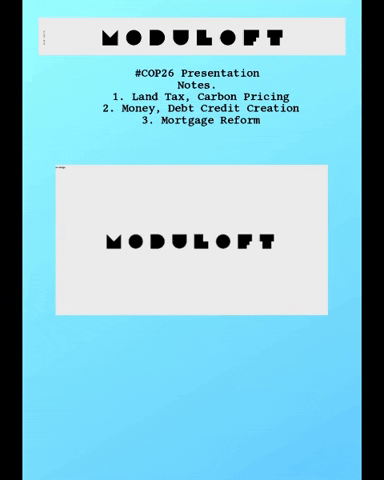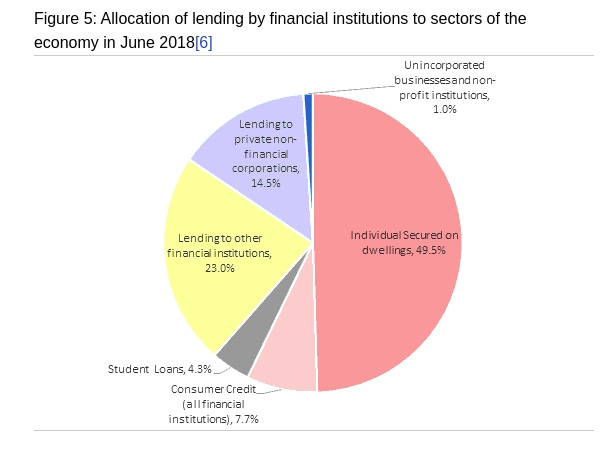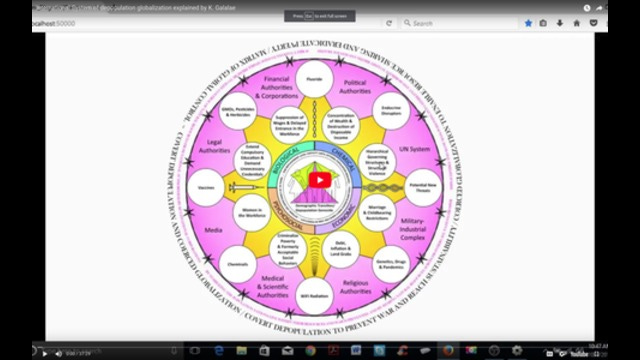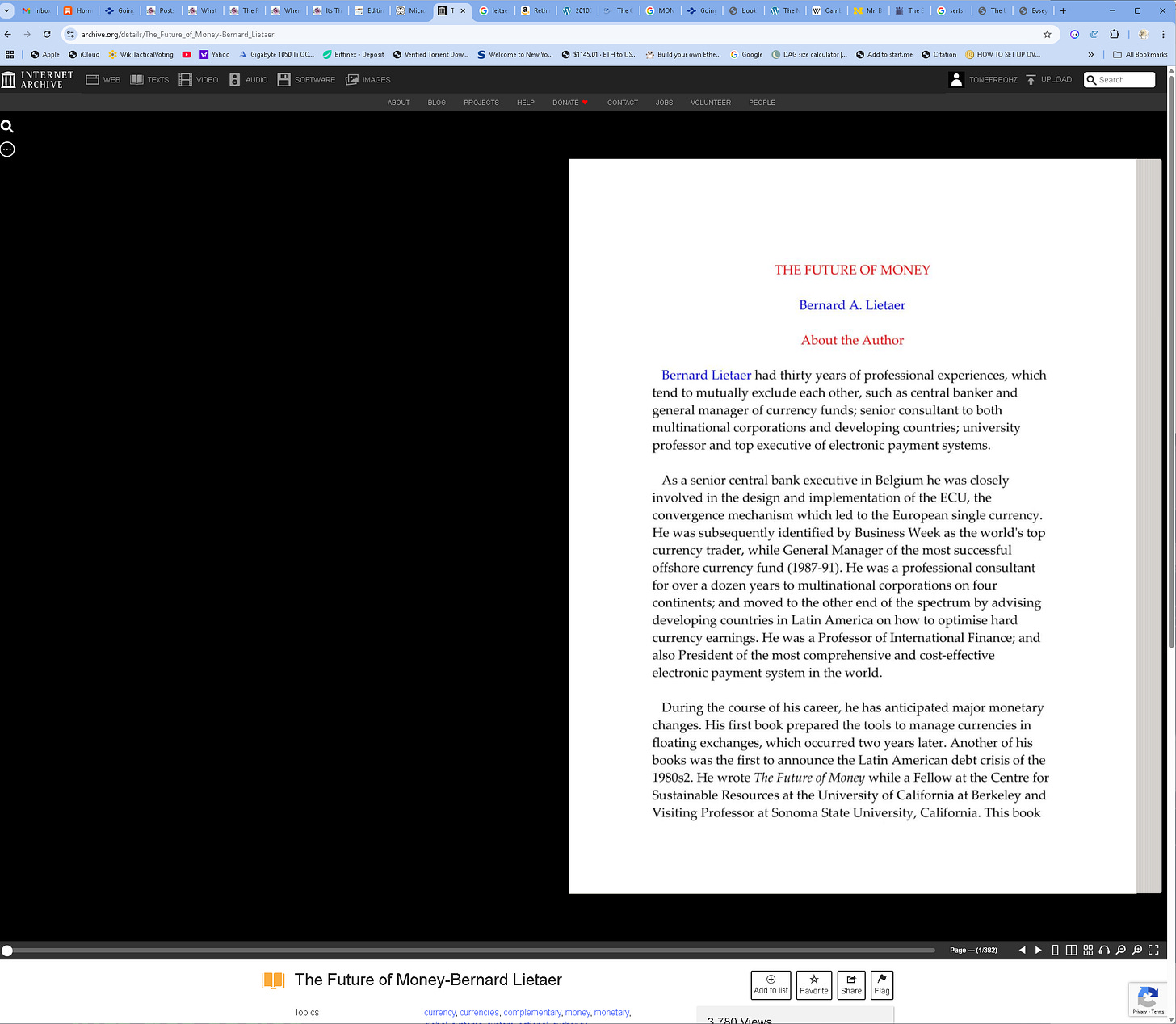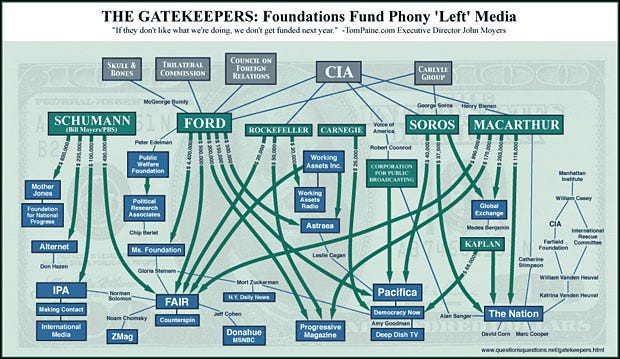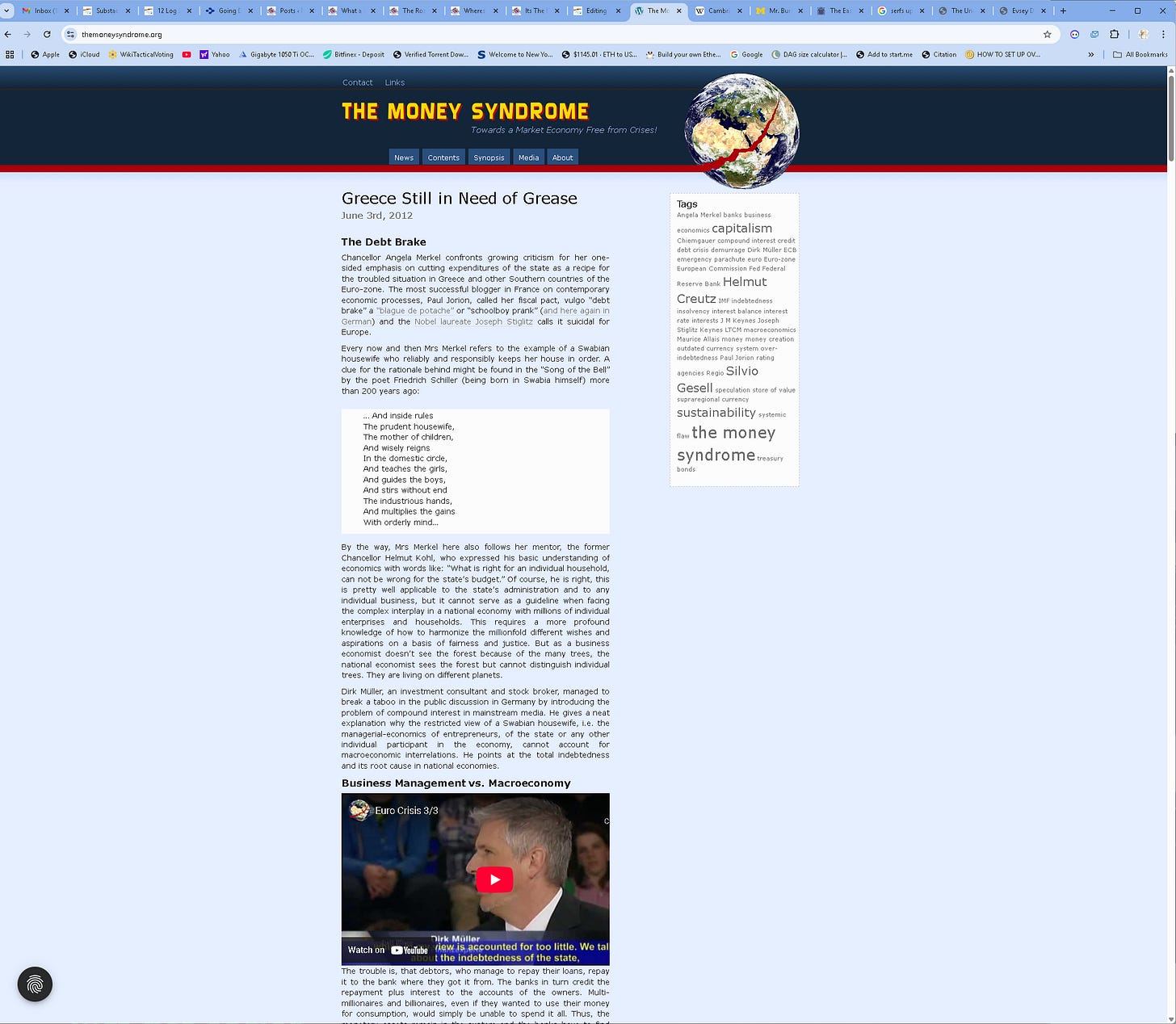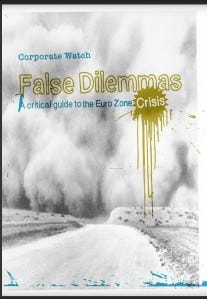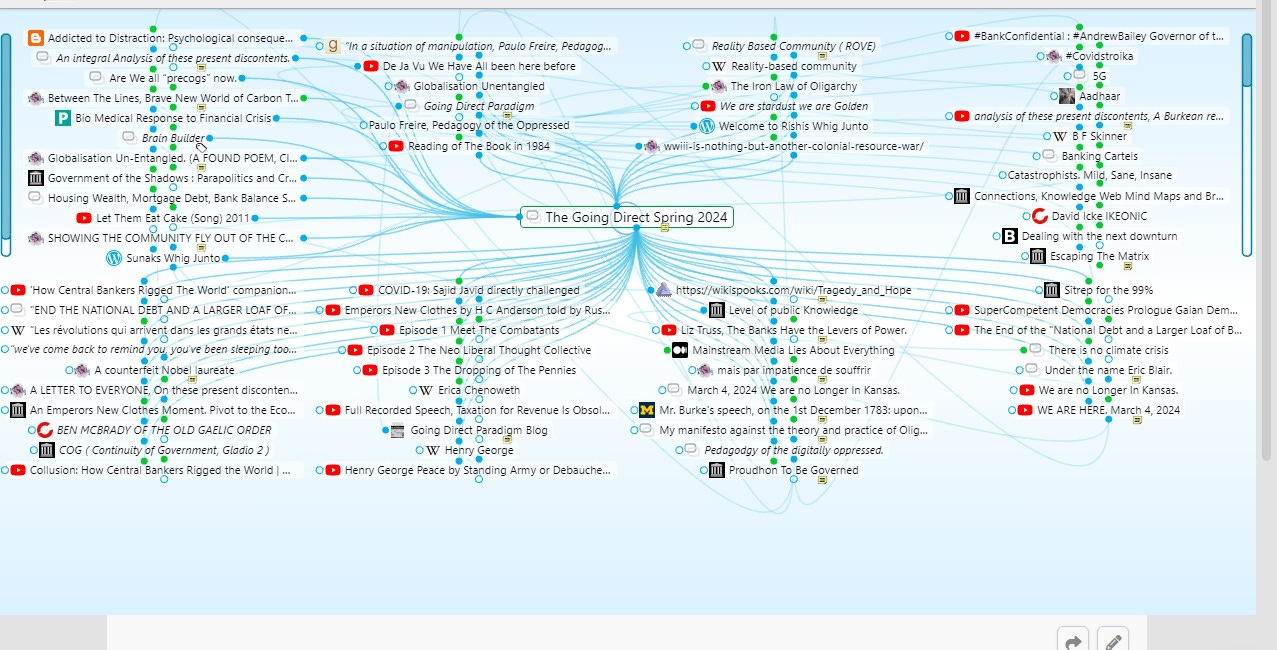Going Direct isn't Working. Part 1. "The Price of the chicken most certainly does not come before the egg". R G Lewis
Rethinking Money: How New Currencies Turn Scarcity Into Prosperity
We have a missallocation and mispricing of credit problem not a resource problem. The price of the chicken most certainly does not come before the egg.
I am sorry we have run out of kilograms.
“The shelves were full at my supermarket and I picked some ripe tomatoes off the shelves placed them in a brown paper bag and put them on one of those scales with the picture you press and it prints out a tiket of the price which you scan at the check out. I was somewhat alarmed when the Machine gave a stern warning, please replace the item we have run out of kilograms”.
https://www.bibocurrency.com/images/The%20Money%20PSYOP%20gift%20copy.pdf
https://www.bibocurrency.com/index.php/currency-money-systems-2
As the United States struggles and the economies of Europe stagger, we fail to see a way out of this agonizing cycle of repeated financial meltdowns. In fact, there are thousands of ways to solve not only our recurring fiscal crises but our ongoing social and ecological debacles as well. Solutions are already in place where terrible problems once existed. The changes came about not through increased conventional taxation, enlightened self-interest, or government programs but by people simply rethinking the concept of money. With this restructuring, everything changes.
In this visionary book, Bernard Lietaer and Jacqui Dunne explore the origins of our current monetary system—built on bank debt and scarcity—revealing the surprising and sometimes shocking ways its unconscious limitations give rise to so many serious problems. But there is hope. The authors present stories of ordinary people and their communities using new money, working in cooperation with national...
Author(s): Bernard Lietaer; Dunne, Jacqui
Publisher: Berrett-Koehler Publishers, Year: 2013
ISBN: 9781609942960,9781609942977,9781609942984
The Case for Building Wealth with Richard Werner
https://longhairedmusings.wordpress.com/2018/06/29/embodied-energy-cost-of-opportunity-cost-which-would-be-a-true-metric-of-decision-making-where-resource-constraints-involve-mutually-exclusive-investment-decisions/
In today's economic landscape, the pivotal role of banks in shaping local and global economies cannot be overlooked. As we navigate through the intricacies of monetary policy and financial data, it becomes increasingly evident that understanding the inner workings of the banking system is crucial for policymakers and citizens alike. The concept of state(US) UK ( Regional Authority and Local Level) sovereign banking emerges as a potential solution to address the challenges posed by centralized monetary policies. By empowering state-level institutions to expand the money supply and support local economic initiatives, a state sovereign bank can serve as a catalyst for economic growth and resilience. The establishment of state banks is essential in safeguarding against potential crises and insulating local communities from the perils of centralized control. By fostering dialogue and collaboration, we can work towards creating a robust financial ecosystem that prioritizes local autonomy and economic prosperity. Embracing localized money provision and allocation is imperative in ensuring a more resilient and prosperous future for generations to come.
When I refer to per capita demand, I am largely referring to the fact that several non-western nations (such as Russia and China) want to increase the living standards of their people significantly to match the living standards of western nations (such as the US and France.) Higher living standards equate to higher energy use per capita. There is not enough new energy supply growth to actually meet this desire, so this drives conflicts of various stripes between western and non-western nations. We would apparently need to discover multiple Ghawar-sized oil fields in order to make living standard parity possible (and that is obviously not in the cards.)
Simon Michaux's work on this is an excellent read. His "Oil from a Critical Raw Material Perspective" is something I highly recommend for anyone interested in these topics: tupa.gtk.fi/raportti/ar… -- see the chart on page 5, for instance.
The price of a barrel of oil is driven by a number of supply and demand factors, but my comment was focused more on the bigger picture, not the spot price of oil day-to-day.
As for the idea that the energy pie is still growing, I'd refer you to the work of Doomberg here on Substack.
Oil from a Critical Raw Material Perspective" is something I highly recommend for anyone interested in these topics: tupa.gtk.fi/raportti/ar… -
Peak oil literacy?
see page
231/497
Why would you say Saudi and Iraq are not designated Peak Oil Literate?
Could you cite empirical sources that show EROI on oil has fallen to a societal threatening level. I have looked and there are none I can find?
Tim Morgans Seeds Falsified? Peak Oil Falsified.
Based on the provided content, I'll summarize the key arguments challenging the EROI (Energy Return on Investment) decline narrative:
EROI doesn't need to fall to societal threatening levels. It is only a small part of the whole picture. It takes more and more oil to extract all kinds of other minerals. Population is growing, so we need more roads and things. And EROI does not count how quickly a resource pays back. Even with high EROI, an energy resource with slow payback can collapse the debt structure. EROI is a side street, in the whole story. It, unfortunately, doesn't tell us much.
Good morning Gail,
The Debt structure is indeed the problem and that is actually very good news.
Money is a creature of human laws and for most of human history the answer to the usury end game was debt Jubilee.
“EROI does not count how quickly a resource pays back.”,
This is a classic time cost of money argument, with the use of many “ capital infrastructures” the value in use is an opportunity cost not a time cost. These distinctions are very important in re designing a monetary system fit for purpose, by known historical standards let alone the sort of system possible with 21st century technology.
Helmuth Kreutz did a great Job on these questions in his book The Money Syndrome .
Henry Carey wrote in the late 19th century criticising free traders, promoting what is known as the American System in opposition to it. Pierro Saffra proved the Chicago School wrong about competition and Monopolies based upon the false mathematics of equilibria. Known as the Cambrige controversy.
Edmund Burke in his speech against the East India company charter pointed out that the name Charter for a coercive monopoly was a misnomer.
At its heart this is a problem of accounting. The accounting system needs to be changed. There are many alternatives but all are offensive to powerfull vested interests.
As the logical flaws in the present system are indefensible , those vested interests will provaricate and dissemble, this is their only strategy as the Coming debate as in previous episodes of the very same problem ends in new arrangements with debt restructuring etc.
Burkes pamphlet on these present discontents points out that when the citizenry are annoyed it is usually for good reason and in such circumstances it is easier to reform the mode and means of governance than it is to reform the people.
Gk Chesterton equipped that the poor only object to being governed badly, the Rich object to being governed at all.
Artificial scarcity of the monetary unit is a choice of those who issue debt/credit instruments this is a destructive choice which leads to the impoverishment of economies to the gain of the issuesrs. This is an abuse of a public commons delegated to public/private partnerships.
We have a missallocation and mispricing of credit problem not a resource problem. The price of the chicken most certainly does not come before the egg.
I am sorry we have run out of kilograms.
“The shelves were full at my supermarket and I picked some ripe tomatoes off the shelves placed them in a brown paper bag and put them on one of those scales with the picture you press and it prints out a tiket of the price which you scan at the check out. I was somewhat alarmed when the Machine gave a stern warning, please replace the item we have run out of kilograms”.
Mr. Burke's speech, on the 1st December 1783: upon the question for the Speaker's leaving the chair, in order for the House to resolve itself into a committee on Mr. Fox's East India Bill.
On the contrary I am certain that every means, effectual to preserve India from oppression, is a guard to pre∣serve the British constitution from its worst cor∣ruption. To shew this, I will consider the ob∣jections, which I think are four.
1st. That the bill is an attack on the chartered rights of men.
2dly. That it increases the influence of the crown.
3dly. That it does not increase, but diminishes, the influence of the crown, in order to pro∣mote the interests of certain ministers and their party.
4thly. That it deeply affects the national credit.
As to the first of these objections; I must ob∣serve that the phrase of
"the chartered rights of men,"
is full, of affectation; and very unusual in the discussion of privileges conferred by char∣ters of the present description. But it is not dif∣ficult to discover what end that ambiguous mode of expression, so often reiterated, is meant to answer.
The rights of men, that is to say, the natural rights of mankind, are indeed sacred things; and if any public measure is proved mischievously to affect them, the objection ought to be fatal to that
descriptionPage 6
measure, even if no charter at all could be set up a∣gainst it. If these natural rights are further affirm∣ed and declared by express covenants, if they are clearly defined and secured against chicane, against power, and authority, by written instruments and positive engagements, they are in a still better condition: they partake not only of the sanctity of the object so secured, but of that solemn pub∣lic faith itself, which secures an object of such importance. Indeed this formal recognition, by the sovereign power, of an original right in the subject, can never be subverted, but by rooting up the holding radical principles of government, and even of society itself. The charters, which we call by distinction great, are public instruments of this nature; I mean the charters of King John and King Henry the Third. The things secured by these instruments may, without any deceitful ambiguity, be very fitly called the chartered rights of men.
These charters have made the very name of a charter dear to the heart of every Englishman—But, Sir, there may be, and there are charters, not only different in nature, but formed on principles the very reverse of those of the great charter. Of this kind is the charter of the East India Company. Magna charta is a charter to restrain power, and to destroy monopoly. The East India charter is a charter to establish monopoly, and to create power. Political power and commercial mono∣poly are not the rights of men; and the rights to them derived from charters, it is fallacious and sophistical to call
"the chartered rights of men."
These chartered rights, (to speak of such char∣ters and of their effects in terms of the greatest
descriptionPage 7
possible moderation) do at least suspend the natural rights of mankind at large; and in their very frame and constitution are liable to fall into a direct violation of them.
By these means, in the course of not more than four or five years, this once opulent and flourish∣ing country, which, by the accounts given in the Bengal consultations, yielded more than three crore of Sicca rupees, that is, above three millions ster∣ling, annually, is reduced, as far as I can discover, in a matter purposely involved in the utmost per∣plexity, to less than one million three hundred thousand pounds, and that exacted by every mode of rigour that can be devised. To complete the business, most of the wretched remnants of this revenue are mortgaged, and delivered into the hands of the usurers at Benares (for there alone are to be found some lingering remains of the an∣cient wealth of these regions) at an interest of near thirty per cent. per annum.
The revenues in this manner failing, they seized upon the estates of every person of emi∣nence in the country, and, under the name of resumption, confiscated their property. I wish, Sir, to be understood universally and literally, when I assert, that there is not left one man of property and substance for his rank, in the whole of these provinces, in provinces which are nearly the extent of England and Wales taken together. Not one landholder, not one banker, not one merchant, not one even of those who usually perish last, the ultimum moriens in a ruined state, no one farmer of revenue.
The East India Company and public opinion
March 4, 2020
Ariadnes Ball of String. Back to Golem. To Whom do we owe this Money? StrudyBlog, Golem, The Slog, Robin Smith. Dr Adrian Wriggley #RichardWerner
Free Trade vs Free Market , Careys American System vs Ricardo-Malthusian system. Monopoly vs Free Market Competition
ROGERGLEWIS APRIL 9, 2023 LEAVE A COMMENT
Essay on the Rate of Wages, with an Examination of the Differences in the Condition of the Laboring Population throughout the World.
Economic nationalism and trade[edit]
Further information: Economic nationalism and Protectionism
A common theme in Carey’s writing is the limits of international economic association and the necessary of national association,[40] and his best-known policy position was his defense of protective tariffs. He was described by an admirer as “rigid, devoted, and uncompromising” on the issue,[41] and as “a Cato hammering on his one theme.”[21] Critics accused Carey of Anglophobia for his hostility to the system of free trade under the British Empire and British theories of political economy in general.[3]
Consistent with the law of comparative advantage, Carey argued that global centralization implied an international division of labor by which each nation developed only those resources in which it possessed a natural advantage. This system placed despotic power in the hands of those controlling the world’s mediums of exchange; the places where these middlemen congregated became the global marketplace.[40] This theory, he argued, was the basis for the British policy of imperialism and free trade, by which the Empire intended to establish a monopoly on both manufacturing and shipping centered on London, while other nations were resigned to exporting raw materials.[40]
Essay on the rate of wages: with an examination of the causes of the differences in the condition of the labouring population throughout the world
by
Carey, Henry Charles, 1793-1879
For many years it has been in contemplation to make a canal or rail-road from Havre to Paris, and thence to the Rhine; but it is not yet commenced, although offering greater advantages than almost any other route in Europe. With a capital like Paris and similarly situated, the people of the United States would, before this time, have made some half dozen communications with the ocean, and most probably have reached the Rhine in two or three places. Already there are two communications between the ocean and the western waters completed, and several others are in progress, and likely to be completed sooner than that between the Rhine and the ocean, although the latter would afford facilities of intercourse to a population at least twenty times greater than can benefit by any one of the others. At Am8terdam» capital may often be had at two per cent per annum, but it is not wanted for such purposes, and the bankers find a market for it here at a much higher price than can be obtained at home.
The same causes have prevented the construction (broads or canals in Spain, the consequence of which is, that " all means of transport are dear, and in the neighbourhood of Salamanca it has been known, after a succession of abundant harvests, that the wheat has actually been left to rot upon ike ground, because it would not repay the cost of carriage." — Ed. Rev, VoL LV., 448.
The Economic consequences of President Trump.
The Economic consequences of President Trump. Is the Dollar being devalued by stealth. That old trilemma
Is the Dollar being devalued by stealth. That old trilemma. The economic consequences of President Trump.
‘The flak is heaviest when you are over the target!’
A Priori, "The Proof of a Theory is in its reasoning " Ludvig Von Mises. I would propose this title. "Gold Is Money" JP Morgan. Discuss?
2 Ludwig Von Mises, Theory of Money & Credit, 1912, (Capetown, Jonathan Cape, 1934), pp. 82, 478, and Ch. 7, sect
24 PROPOSALS FOR U.S. MONETARY REFORM 677
2. Poor monetary and economic thought Much inane monetary thinking arises from the Austrian School of Economics, which has more influence in America than in Europe, thanks to its hold on American Libertarians. The monetary positions of this school are weak right from its founder Carl Menger’s theory of the origin of money. Their main monetary tract was written in 1912 by LudwigVon Mises at only age 31. Yet re-printings have almost no changes, despite the momentous monetary events that occurred since then! This reveals a kind of arrogance to beware of. Von Mises’ rarely read bookhas many contradictions and bold unsupported assertions on its key monetary positions, for example his assertion that: “The concept of money as a creature of law and the State is clearly untenable. It is not justified by a single phenomenon of the market.” 16 Why? No answer. That single statement brands him as either dishonest or foolish. It is clear from history that money is a creature of the law and the state. We have documented case histories that prove himwrong, in many of our chapters. The Austrian School - “A leap backward” The method of Von Mises and the Austrians is either a form of shouting as in the above example, or it is theoretical, a’priori reasoning. This use of deduction rather than observation, and their tendency to ignore the scientific method, caused the Austrian School to be labeled “a leap backwards” in economic thought by Edward C. Harwood, founder of the American Institute for Economic Research (AIER) in Great Barrington, Massachusetts: “Dr. Von Mises denies not once but several times that his theories can ever be disproved by facts. This point of view represents a leap backward to Platonic Idealism or one of its offspring in various disguises.” 17 The ongoing work of the AIER should not discard Harwood’s acute observations on this matter.© It should be mentioned that among the Austrian economists, the author truly admires Professor Murray Rothbard’s clear and unequivocal condemnation of fractional reserve banking as a “Ponzi scheme.” Von Mises criticized it less forcefully; but most Austrians support it in the name of free markets. Rothbard understood that free markets stop where fraud and privilege begin. We don’t mean to only single out the Austrians. Similar charges apply to other “schools” as well. As a “science,” economics is very ill.
©The author served as a Trustee and Executive Committee member ofthe American Institute for Economic Research (AIER) in 1976, in a successful effort to help the Institute resolve its problems with the Securities & Exchange Commission.)
References Chapter 24.
#Moduloft, The Affordable Housing Manufacturers. Defining the Terms of and Boundary Conditions of our Domain.
https://web.archive.org/web/20230604103451/https://notthegrubstreetjournal.com/2020/12/13/moduloft-the-affordable-housing-manufacturers-defining-the-terms-of-and-boundary-conditions-of-our-domain/
Utilising the Quantity Theory of Credit to Understand the Causes of the 2007 Financial Crisis
Home » Educational resources » Sub-disciplines » Money, Banking & Finance
© Copyright Maurice Starkey 2018 and available for reproduction under a Creative Commons CC-BY-SA license. Download this as a Microsoft Word document.
Contents
Introduction
1. Financial Deregulation
2. Credit money creation by banks and building societies
3. The Quantity Theory of Credit
4. Central Bank Policies to Manage the 2007 Financial Crisis
4.1 Should the Bank of England reduce interest rates in response to this type of financial crisis?
4.2 What type of quantitative easing is appropriate?
Bibliography
Footnotes
https://www.economicsnetwork.ac.uk/archive/starkey_banking2
SYNOPSIS:
James Surowiecki writes fine columns, and this one is no exception. But he's got the story of the effects of the Black Death on serfdom backwards. He - and anyone else curious about history - should read Evsey Domar's classic 1970 paper "The causes of slavery or serfdom: a hypothesis." (Sorry, doesn't seem to be available online.)
Here's what Surowiecki says: "The Black Death helped undermine feudalism. The population decline was so severe that the individual’s labor grew more valuable, which enabled serfs to abandon their lords and become tenant farmers or urban workers. " That sounds plausible, but it's not the way it happened. According to Domar, serfdom actually withered away before the Black Death, as European population grew close to its Malthusian limit. The puzzle is why serfdom wasn't reinstituted after the Black Death.
Domar was motivated by his knowledge of Russian history. Serfdom in Russia, he knew, wasn't an institution that dated back to the Dark Ages. Instead, it was mainly a 16th-century creation, contemporaneous with the beginning of the great Russian expansion into the steppes. Why?
He came up with a simple yet powerful insight: there's no point in enslaving or enserfing a man unless the wage you would have to pay him if he was free is substantially above the cost of feeding, housing, and clothing him.
Imagine a pre-industrial society where population is pressing on limited land supplies, and the marginal product of labor - and hence the real wage rate under competitive conditions - is barely at subsistence. In that case, why bother establishing property rights in human beings? It costs no more to hire a free worker than to feed an indentured laborer. Indeed, by 1300 - with Europe very much a Malthusian society - serfdom had withered away from lack of interest.
But now suppose that for some reason land becomes abundant, and labor scarce. Then competition among landowners will tend to push up wages of free workers, and the ruling class will try, if it can, to pin peasants down and prevent them from bargaining for a higher standard of living. In Russia, it was all about gunpowder: suddenly steppe nomads were no longer so formidable, and the rich lands of the Ukraine were open for settlement. Serfdom was an effort to keep peasants from taking advantage of this situation. (And if I've got it right, those who were venturesome enough to run away and set up outside the system became Cossacks.)
Meanwhile, the New World opened in the west. Sure enough, the colonizing powers tried various forms of indentured servitude - making serfs of the Indians in Spanish territories, bringing over indentured servants in Virginia. But eventually they hit on a better solution, from their point of view: importing slaves from Africa.
Here's the puzzle. In Europe circa 1100, with population scarce, serfdom was useful to the ruling class. By 1300 it wasn't, and had been allowed to drift away. But after 1348 it should have been worthwhile again. Yet it wasn't effectively reimposed. There were attempts to restrain wages and limit labor mobility, as well as attempts to tax the peasants (Wat Tyler's rebellion fits into all this.) But all-out feudalism didn't return. Why?
And an even bigger question: why hasn't indentured servitude made a comeback in the modern era? Yes, I know, human rights and all that - but if it was profitable to have indentured servants in the modern world, I'm sure that Richard Scaife's think tanks would have no trouble finding justifications, and assorted Christian groups would explain why it's God's will.
Anyway, have to get back to real work. But try to find a copy of Domar's paper and read it.
Originally published on the Official Paul Krugman Page, 5.8.03
https://web.archive.org/web/20030609230037/http://cepa.newschool.edu/het/profiles/domar.htm
March 26, 2020
Wheres the Beef, Meat and Two veg or boiled beef and carrots. Tyranny of the Vegans. Brick in the wall. Hole in the wall.A WARNING FROM TOMORROW . Solarium from Ike to Trump. #CovidPurpose #FollowtheDebt #DebtServitude #Goodwillhunting #Wheresthebeef
02:05
Read “Good Will Hunting Bar Scene” by Good Will Hunting on Genius
https://genius.com/Good-will-hunting-good-will-hunting-bar-scene-annotated
Will (Matt Damon): “Of course that’s your contention. You’re a first year grad student. You just got finished readin’ some Marxian historian — Pete Garrison probably. You’re gonna be convinced of that ’til next month when you get to James Lemon, and then you’re gonna be talkin’ about how the economies of Virginia and Pennsylvania were entrepreneurial and capitalist way back in 1740. That’s gonna last until next year — you’re gonna be in here regurgitating Gordon Wood, talkin’ about, you know, the Pre-Revolutionary utopia and the capital-forming effects of military mobilization… Wood drastically — Wood drastically underestimates the impact of social distinctions predicated upon wealth, especially inherited wealth.’ got that from Vickers, ‘Work in Essex County,’ page 98, right? Yeah, I read tYouhat too. Were you gonna plagiarize the whole thing for us? Do you have any thoughts of your own on this matter? Or do you…is that your thing? You come into a bar. You read some obscure passage and then pretend…you pawn it off as your own idea just to impress some girls and embarrass my friend? See, the sad thing about a guy like you is in 50 years you’re gonna start doin’ some thinkin’ on your own and you’re gonna come up with the fact that there are two certainties in life. One: don’t do that. And two: You dropped a hundred and fifty grand on a f—-n’ education you coulda’ got for a dollar fifty in late charges at the public library.”
Howard Zinn (August 24, 1922 – January 27, 2010) was an American historian, playwright, and socialist thinker. He was chair of the history and social sciences department at Spelman College,[1] and a political science professor at Boston University. Zinn wrote over 20 books, including his best-selling and influential A People’s History of the United States. In 2007, he published a version of it for younger readers, A Young People’s History of the United States.[2]
Zinn described himself as “something of an anarchist, something of a socialist. Maybe a democratic socialist.”[3][4] He wrote extensively about the Civil Rights Movement and anti-war movement, and labor history of the United States. His memoir, You Can’t Be Neutral on a Moving Train (Beacon Press, 2002), was also the title of a 2004 documentary about Zinn’s life and work. Zinn died of a heart attack in 2010, at age 87.[5]
After two years as a post-doctoral fellow in Williamsburg, Virginia, and a year teaching at the University of Wyoming in Laramie, Vickers was appointed to a permanent position at Memorial University in 1984. The family flourished in Newfoundland, but in early 1999 Vickers was diagnosed with non-Hodgkins lymphoma. The high reputation of the doctors at the University of California, Dan Diego was a factor in Vickers accepting an offer to join the UCSD History Department later that year.
By this time Vickers was well known to historians throughout the States. His award-winning 1994 book Farmers and Fishermen: Two Centuries of Work in Essex Country, Massachusetts, 1630-1830, had delineated through painstaking analysis of archival records of entire communities the extent to which the development of New England had depended on labor that was largely unfree—with workers held in check not by slavery but by onerous burdens of debt. It had been hailed by reviewers as “one of the best works yet written on the early American economy” and as a book that explained “the deepest inner workings of New England society.”
Chuckie: …How ya like me now?!
had delineated through painstaking analysis of archival records of entire communities the extent to which the development of New England had depended on labor that was largely unfree—with workers held in check not by slavery but by onerous burdens of debt
Follow the debt in the Bailouts!
Roger G LewisJuly 16, 2017 at 11:15
“Banks borrow money short-term at low interest and lend long at marginally higher rates. It may sound precarious, but it is how they earn their living. In the conventional model, however, the short-term funding comes from deposits, from ordinary savers. Ordinarily, in a well-run bank, their withdrawals and deposits tend to cancel each other out. Fits of uncertainty and mass withdrawals are always possible, and perhaps even inevitable once in a while. So to prevent them turning into bank runs, governments offer guarantees up to a reasonable amount. Most of the Northern Rock depositors had little to fear. Their deposits were, like all other ordinary savers, guaranteed by then Chancellor Alistair Darling. The investors who weren’t covered by government backing were those who had provided Northern Rock with funding through a new and different channel—the wholesale money market. They had tens of billions at stake, and every reason to panic. It was the sudden withdrawal of this funding that actually killed Northern Rock.As well as taking in money from savers, banks can also borrow from other banks and other institutional investors. The money markets offer funds overnight, or for a matter of weeks or months. It is a fiercely competitive market with financial professionals on both sides of every trade. Margins are slim, but if the volumes are large there are profits to be made. For generations, this was the preserve of investment bankers—the ultimate insiders of the financial community. They didn’t bother with savers’ deposits. They borrowed in the money markets. From the 1990s commercial banks and mortgage lenders began to operate on a similar model. It was this new form of “market-based” banking combined with the famous securitisation of mortgages that enabled the huge expansion of European and US banking that began to crash in 2007.“This aspect of the Article is completely flawed. Banks Create money by originating debt, that is by finding people who will sign debt contracts in return for offering security. The Bail Out funds Post 2008 and QE are based upon re defining the security or quality of the Security offered in support of those debt contracts. The commercial Banks moved their own goal posts with the full cooperation of the Central Banks and the Treasury departments of various Washington Consensus Governments, Chiefly The ECB, The Fed, Bank of England, Bank of Japan. with the Chinese and Russian Central Banks Going out in the cold and forming the BRICS Development Bank seeking to Head of a UNI Polar Dollar based World at the pass.The Accounting takes place after this initial money creation and the complex system of Central Bank Clearing is really a framework of Mexican standoffs where each player realises that they must not cross the others in a code of honour amongst thieves with of course Wall street and the dollar being first amongst equals?Without getting to the bottom of Bank Created Debt Based Money article such as these Let off the hook those they claim to be holding to account.
I also noticed that Varafoukis posted the review of his latest book by Tooze. It seems both Tooze and Varafoukis are similarly in need of a sharp talking to from Prof. Lietaer. Steve Keen is a Freind of Varafoukis and again has a strange aversion to talking about Usury as other priests of the Heterodox monetary school also have. I´m going back to Read some Kreutz, these elite sophists all stick together, Always Jam tomorrow, said, Alice?
March 15, 2020
Crony Capitalist Virus 2020 , Truth to Power. Brexit, Globalism, Feudalism, Green New Deal, the Epidemic of Bullshit Unravelled. @davidgraeber @financialeyes @JoeBlob20 #DebtBomb @DominicFrisby #Life on the Farm, #TwoLegsGood From 1984 to Animal Farm. Thinning the Herd and the Inanition of Stock. Boris’s Technocratic Dystopia, Singapore on Thames #WrongKindofGreen #WaroftheWorlds
The Road to Serfdom, Directions from a Blind Man. ( I would not start from here?) Krugman, De-Long, Keen , Varafoukis.) Lietaer and Kreutz, Who He?
rogerglewis #Poetry #Poem July 22, 2017 10 Minutes
Looking at Serfdom there is a link to the excellent Wikipedia article to Brad De Longs Blog, he is I see from Wikipedia reckoned to be the 754th most influential economist in the World, He is a Professor at Berkely, where no less than two of my Former Business Partners are also Tenured Professors, also in The Economics Priesthood.
According to Wikipedia, he is a self-proclaimed Neo Liberal?
( https://en.wikipedia.org/wiki/J._Bradford_DeLong ) , served under Clintons Economics chief Summers and whilst he seems a thoroughly nice and well meaning chap he has no Clue, certainly no wish to draw any attention to having any clue as to Money Creation, more precisely endogenous money creation.
http://www.j-bradford-delong.net/movable_type/2003_archives/001447.html
May 10, 2003
The Causes of Slavery or Serfdom: A Hypothesis
Paul Krugman’s post, Serfs Up!, reminds me of one of my major sins this spring (for which I must atone): my cutting Evsey Domar (1970), “The Causes of Slavery or Serfdom: A Hypothesis,” Economic History Review 30:1 (March), pp. 18-32, from my spring 2003 Economics 210a reading list.
As Krugman summarizes Domar’s main point:
Domar was motivated by his knowledge of Russian history. Serfdom in Russia, he knew, wasn’t an institution that dated back to the Dark Ages. Instead, it was mainly a 16th-century creation, contemporaneous with the beginning of the great Russian expansion into the steppes. Why? He came up with a simple yet powerful insight: there’s no point in enslaving or enserfing a man unless the wage you would have to pay him if he was free is substantially above the cost of feeding, housing, and clothing him.
Imagine a pre-industrial society where population is pressing on limited land supplies, and the marginal product of labor – and hence the real wage rate under competitive conditions – is barely at subsistence. In that case, why bother establishing property rights in human beings? It costs no more to hire a free worker than to feed an indentured laborer. Indeed, by 1300 – with Europe very much a Malthusian society – serfdom had withered away from lack of interest. But now suppose that for some reason land becomes abundant, and labor scarce. Then competition among landowners will tend to push up wages of free workers, and the ruling class will try, if it can, to pin peasants down and prevent them from bargaining for a higher standard of living. In Russia, it was all about gunpowder: suddenly steppe nomads were no longer so formidable, and the rich lands of the Ukraine were open for settlement. Serfdom was an effort to keep peasants from taking advantage of this situation. (And if I’ve got it right, those who were venturesome enough to run away and set up outside the system became Cossacks.)
Meanwhile, the New World opened in the west. Sure enough, the colonizing powers tried various forms of indentured servitude – making serfs of the Indians in Spanish territories, bringing over indentured servants in Virginia. But eventually they hit on a better solution, from their point of view: importing slaves from Africa…
Domar’s contribution is truly one of the most effective and powerful pieces of synthetic social science I have ever read. It isn’t perfect. He has more predecessors than he realizes (Marx, for example, especially Marx’s observations on the Swan River Colony in Australia, and the whole section on primitive accumulation and the creation of agrarian capitalism in Britain). And Domar misses one big cause of serfdom and slavery. During the formation of the Roman Empire, in Poland at the end of the Middle Ages, and in the Caribbean islands during the early modern period, slavery and serfdom did not emerge because a high land-labor ratio meant that the ruling elite could not afford to bid for labor in a free labor market. Slavery and serfdom emerged, instead, because high demand for staple products (grain, sugar, tobacco…) greatly lowered the gap between the productivity of free and the productivity of bound workers. Staple production is easier for gang-bosses to monitor than more diversified farming. Staple production also has lower skill requirements for workers. When demand for staple products is very high–to feed the proletariat of imperial Rome, to feed the growing cities of late-Medieval Flanders, or to supply the cheap luxuries demanded by early modern England–slavery or serfdom can emerge even without an extraordinarily high land/labor ratio.
October 10, 2019
What a Long windy road to serfdom #The Road to Serfdom #Looking at the bumps in the road. and the Bums in Parliament. #FullyBlownKakistocracy #PeacefullCommmonLawRebellion
TonefreqhzTides of the Dollar Moonhttps://www.bitchute.com/video/khcMkO9Fuobn/
TonefreqhzFIxing Money Better Soundhttps://www.bitchute.com/video/0eWXoipxpX74/
The New Servile State: On Banks, Tech Lords, and Modern Feudalism Parasitic Finance Sector
# US and UK Financial & Tech Sector Profit Analysis
Money and what I make of it.Underlined, Full Stop!
Dear Diary ( Blog, Substack, internal conversation, zeitgeist, universe, God.),
https://library.uniteddiversity.coop/Money_and_Economics/Bernard_Lietaer/Integral_Money.pdf
https://archive.org/details/The_Future_of_Money-Bernard_Lietaer
https://www.amazon.com/Rethinking-Money-Currencies-Scarcity-Prosperity/dp/1609942965
Buy it anywhere but Amazon if you can, there is a free Libgen link above, I am sure Bernard would not mind that!
https://people.clas.ufl.edu/ulan/files/Lietaer.pdf
Abstract Fundamental laws govern all complex flow systems, including natural ecosystems, economic and financial systems. Natural ecosystems are practical exemplars of sustainability: enduring, vital, adaptive. The sustainability of any complex flow system can be measured with a single metric as an emergent property of its structural diversity and interconnectivity; it requires a balance in emphasis between efficiency and resilience. The urgent message for economics from nature is that the monoculture of national currencies, justified on the basis of market efficiency, generates structural instability in our global financial system. Economic sustainability therefore requires diversification in types of currencies, specifically through complementary currencies. Keywords: sustainability, efficiency, resilience, biodiversity, ecosystems, complexity theory, financial instability, economic sustainability, complementary currencies
Cooperation,GameTheory,12Log2-8, Axelrod,Nowack & Goodwill Hunting
I wrote this note to a friend in October 2016.
12 Log 2 -8 we are the 31.7766166719343%.
For those who are feeling jaded, confused and resentful. 12 Log 2 -8 we are the 31.7766166719343%.
Bernard Lietaer, author, financial expert, and co-designer of the ECU (the monetary mechanism that later became the euro) presented compelling arguments to show that there is a structural flaw in the current monetary system that generates all the current problems and repeated financial and monetary crises, including the eurozone crisis. It is also ecologically unsustainable as it encourages climate change and over-consumption.
https://www.clubofrome.eu/money-and-sustainability-the
Mr Lietaer presented his arguments during a lecture, hosted by the Club of Rome’s EU Chapter in Brussels, to launch the Report from Club of Rome: Money and Sustainability: the Missing Link.
Get a copy: In order to buy a copy of Money and sustainability: The Missing Link please follow this link.
Money and sustainability website:
https://www.triarchypress.net
Link to Finance Watch: www.finance-watch.org
Link to World Business Academy: www.worldbusiness.org
Current monetary system is inherently unstable and destructive
The Report acknowledges that money has ignited an explosion of entrepreneurial and scientific innovation, but says it is structurally unstable and that current problems cannot be solved by simply tinkering with the system. “It would be naïve to think that innovations are magic bullets to solve all our problems. We can no longer afford to overlook new currencies that could promote sustainability”, said Bernard Lietaer.
The Report describes how between 1970 and 2010, there were 145 banking crises, 208 monetary crises, and 72 sovereign debt crises – in other words a total of 425 systemic crises – an average of more than ten each year. The current Greek crisis is simply the last in a long line.
Mark Dubrulle, President of the EU Chapter, which organised the lecture said “Almost everything is for sale in most EU countries. Austerity is imposed at all levels… We hope the book will inspire many a decision maker and opinion leader to change course.”
The solution: the creation of complementary currency systems
The Report says monetary instability could be solved by creating complementary cooperative currency systems (generically called the ‘Civic’) to work in parallel with conventional bank-debt money, counterbalancing its negative effects. It outlines eight examples of cooperative currency systems that can address issues such as healthcare, education, climate change, and employment.
Bernard Lietaer and his co-authors also suggest a solution to the current Greek/Eurozone crisis based on Greece creating complementary urban or regional electronic currencies to run parallel to the euro which the country would retain for international business. The civic/euro exchange rate would be determined in the online market.
Interestingly, this week Deutsche Bank proposed a very similar solution – the creation of the ‘Geuro’, a complementary Greek currency to help it restore an internal competitive economy
https://www.themoneysyndrome.org/
March 12, 2020
@Jan_Mallien , Jan Mallien Asks a Corking question of Madame La Gaffe. ECB Bailing out Europe’s Bank’s, ECB catches a cold and the rest of us die of Pneumonia. Socialism for the Rich and Capitalism for the Precariat.
https://e.issuu.com/anonymous-embed.html?u=corporatewatch&d=corporate_watch_false_dilemmas_guid
The EU corporate lobby tour. As Long as the Corporate Shadow falls over Brexit or Remain the Substance will not change.
rogerglewis Uncategorized June 13, 2018 2 Minutes
The EU corporate lobby tour. As Long as the Corporate Shadow falls over Brexit or Remain the Substance will not change.
Each of four theoretical traditions in the study of American politics—which can be characterized as theories of Majoritarian
Electoral Democracy, Economic-Elite Domination, and two types of interest-group pluralism, Majoritarian Pluralism and Biased
Pluralism—offers different predictions about which sets of actors have how much influence over public policy: average citizens;
economic elites; and organized interest groups, mass-based or business-oriented.
These present Discontents, An Integral Analysis Mind Map.
All of these links from the Introduction to The Going Direct Spring 2024 blog
My Suggestions, Not sure if they will get published so here they are.
Roger G Lewis says:
Your comment is awaiting moderation.
Tomlinson’s Honest Money https://www.amazon.com/Honest-Money-Challenge-John-Tomlinson/dp/1898271380
and future money by James Robertson http://www.jamesrobertson.com/futuremoney.htmhttp://bibocurrency.com/index.php/downloads-2/14-english-root/101-book-page Gauvin The Money Psyop and Bibo http://bibocurrency.com/index.php/downloads-2/14-english-root/105-passive-bibo-currency-distinguishing-claims
Bernard Leitaer The future of money bernard Leitaer pdf download
https://docs.google.com/document/d/1L6f44zBs2-FCYAuHI_X3H-4a3VGB9o1dNUMSGbrpD7k/edit
Helmuth Kreutz the Money Syndrome.
http://www.themoneysyndrome.org/index.php/links/
I find Wrays writing much easier to digest than Mitchells this Paper he did for the Levy Institute is excellent.
http://www.levyinstitute.org/pubs/wp_717.pdffull list for wray on Levy Institute web site
http://www.levyinstitute.org/publications/l-randall-wrayZarlenga ( Lost Science of Money ) Ellen Brown (
http://www.webofdebt.com/
),Alexander Del Mar https://archive.org/stream/AlexanderDelMar/AlexanderDelMar-TheScienceOfMoney1896#page/n7/mode/2up
This is an excellent video Series from Mike Maloney
https://www.youtube.com/playlist?list=PLE88E9ICdipidHkTehs1VbFzgwrq1jkUJ
Cullen Roache for a critique of MMT
https://www.pragcap.com/modern-monetary-theory-mmt-critique/What I have found in the ten plus years I have been studying this seriously is that the questions have become sharper I started really with Tomlinson and the Michael Journal
https://www.michaeljournal.org/
There are some great documentary films as well I have embedded many of them on this web page.
http://theconquestofdough.weebly.com/some-documentary-films.html
https://www.patreon.com/posts/mosler-keen-4pm-18467116
https://medium.com/@alexanderdouglas/keen-and-mosler-on-mmt-35d7cb7b2b68
Neil Wilson is for me the best Blogger on MMT his analysis and critical thought is peerless in the field.
https://web.archive.org/web/20180215150511/https://medium.com/@aldursys
https://medium.com/@aldursys
https://web.archive.org/web/20180215150511/https://medium.com/@aldursys
#ConquestofDough
This article is more than 9 years old
David Graeber: debt and what the government doesn't want you to know – video
This article is more than 9 years old
There is one taboo of economics that the government is hiding from the public, argues David Graeber: it is the fact that if the government balances its books, it becomes impossible for the private sector to do the same. And, he claims, this inevitable debt often gets landed on those in society least able to pay it back





